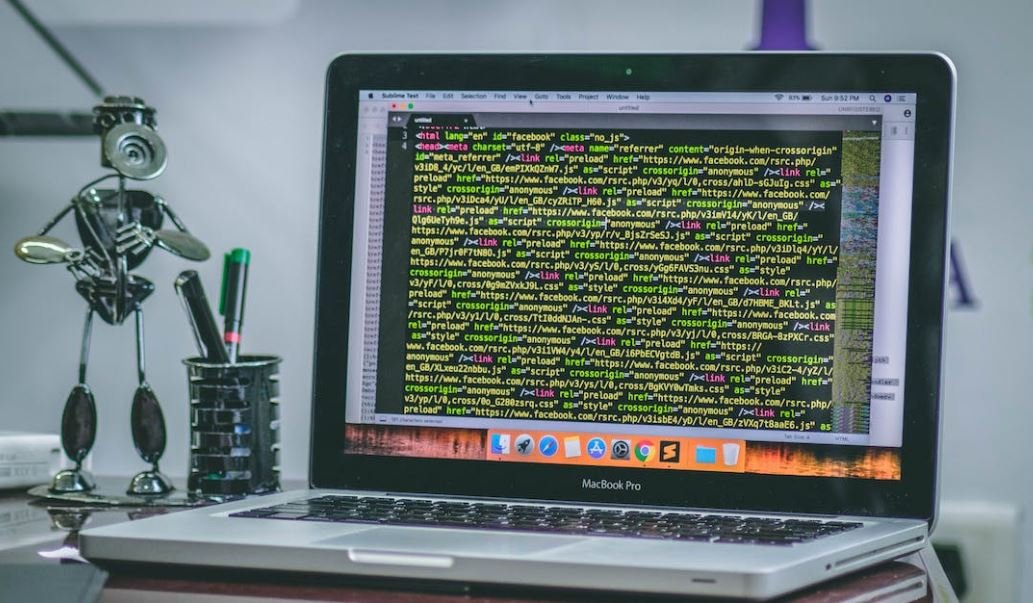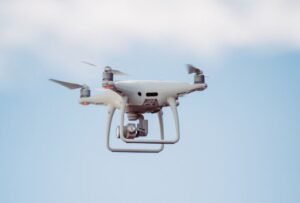AI for Manufacturing
Artificial Intelligence (AI) has become a game-changer in the manufacturing industry. With its ability to analyze vast amounts of data and automate various processes, AI is revolutionizing the way manufacturers operate. From predictive maintenance to quality control, AI is helping companies enhance efficiency, reduce costs, and improve overall productivity.
Key Takeaways
- AI is transforming the manufacturing industry through data analysis and process automation.
- It enables predictive maintenance, quality control, and streamlined operations.
- Implementing AI in manufacturing enhances efficiency, reduces costs, and improves productivity.
One of the significant advantages of AI in manufacturing is its ability to analyze large volumes of data. **This data analysis** allows manufacturers to gain valuable insights into their operations, identify patterns, and make informed decisions. AI algorithms can process data from multiple sources, including sensors, machines, and production lines. By applying machine learning techniques, AI systems can detect anomalies and anticipate potential issues, enabling proactive action to be taken. *AI unlocks the hidden potential within data.*
Another area where AI is making a significant impact is **process automation**. Traditionally, manufacturing processes often involved manual labor and human intervention. However, with the advent of AI, repetitive and labor-intensive tasks can be automated, improving efficiency and reducing the risk of errors. AI-powered robots and bots can perform tasks such as assembly, packaging, and even complex inspections with precision and speed. *The use of AI in automation reduces human errors and increases production accuracy.*
Benefits of AI in Manufacturing
Implementing AI in manufacturing brings numerous benefits to various aspects of the industry. Here are some key advantages:
- **Predictive Maintenance**: AI algorithms can analyze data and predict faults or breakdowns in machinery, allowing maintenance to be performed before issues arise. This approach minimizes downtime and increases equipment lifespan.
- **Quality Control**: AI-powered systems can identify defects and variations in real-time, ensuring only products that meet stringent quality standards are delivered to customers.
- **Inventory Management**: AI can optimize inventory levels by analyzing historical data, demand patterns, and supply chain fluctuations, leading to reduced inventory costs and better customer satisfaction.
In addition to the benefits mentioned above, AI in manufacturing drives innovation and enables the industry to adapt to changing demands and market conditions. By harnessing AI technology, manufacturers can stay ahead of the competition and deliver higher quality products more efficiently.
AI Adoption in Manufacturing
The adoption of AI in manufacturing is on the rise. According to research by Fortune Business Insights, the **global AI in manufacturing market size** is projected to reach $11.44 billion by 2027, growing at a significant CAGR of 24.2% during the forecast period. This indicates the growing recognition of AI as a transformative force within the industry.
| Application | Market Size (2019) | Market Size (2027) |
|---|---|---|
| Predictive Maintenance | $587.1 million | $2.43 billion |
| Quality Control | $536.2 million | $2.08 billion |
| Inventory Management | $323.9 million | $1.34 billion |
Table 1: Expected market sizes for AI applications in manufacturing by 2027 (in billions).
AI adoption varies across different manufacturing sectors. Industries such as automotive, electronics, and consumer goods have been quick to embrace AI-driven technologies due to their potential for optimization and enhanced productivity. However, small and medium-sized manufacturers can also benefit from AI by implementing scalable solutions tailored to their specific needs.
The Future of AI in Manufacturing
The future of AI in manufacturing is promising. As technology advances and AI algorithms become more sophisticated, manufacturers can expect further improvements in efficiency, productivity, and cost reduction. The integration of AI with other emerging technologies like the Internet of Things (IoT) and big data analytics will lead to smarter and more interconnected manufacturing systems, providing actionable insights in real-time.
| Year | Market Size |
|---|---|
| 2019 | $2.91 billion |
| 2020 | $4.11 billion |
| 2021 | $5.43 billion |
Table 2: Expected growth in the global AI in manufacturing market (in billions).
With AI’s potential to transform manufacturing processes, companies that embrace AI technologies can gain a competitive edge in the market. As AI becomes more accessible and affordable, more manufacturers are expected to adopt AI-driven solutions, thus driving further innovation and growth in the industry.
Conclusion
AI has proven to be a game-changer in the manufacturing industry, enabling companies to optimize operations, enhance productivity, and reduce costs. By leveraging AI technologies like data analysis and process automation, manufacturers can unlock new opportunities and stay ahead of the competition in an evolving market. As AI continues to advance, its impact on the industry is expected to grow stronger, leading to increased efficiency, innovation, and profitability.

Common Misconceptions
AI is only for large-scale manufacturing
One common misconception about AI for manufacturing is that it is only beneficial for large-scale manufacturing operations. However, AI technology can be implemented in manufacturing processes of all scales, from small businesses to large factories.
- AI can help small businesses optimize their production processes and improve efficiency.
- AI can assist in quality control and defect detection in small-scale manufacturing operations.
- AI can provide valuable insights and analysis in real-time, regardless of the size of the manufacturing operation.
AI will replace human workers in manufacturing
Another misconception is that AI will completely replace human workers in the manufacturing industry. While AI can automate certain tasks and improve productivity, human workers are still essential for many critical aspects of manufacturing.
- AI can enhance workers’ productivity and reduce their workload by automating repetitive tasks.
- Human workers provide the necessary expertise and creativity that AI lacks.
- AI and human collaboration can result in more efficient and higher quality manufacturing processes.
AI is too expensive for small manufacturers
Some believe that AI is only accessible to large manufacturers due to the perceived high cost of implementation. However, AI technology has become more affordable and accessible in recent years, making it viable for small manufacturers as well.
- AI tools and platforms are available at various price points, catering to the needs and budgets of small manufacturers.
- Adopting AI can lead to cost savings in the long run by optimizing production processes and reducing waste.
- There are also government grants and funding options available to support small manufacturers in implementing AI technology.
AI in manufacturing is limited to robots and automation
Many people assume that AI in manufacturing is limited to robots and automation, but AI technology has a much broader scope and can be applied in various ways beyond physical machines and robotics.
- AI can be used for predictive maintenance, analyzing data to identify maintenance needs before equipment failures occur.
- AI can improve supply chain management and optimize inventory levels by forecasting demand and identifying patterns.
- AI can provide real-time analytics and insights to support decision-making in areas such as production planning and quality control.
AI for manufacturing is fully autonomous and does not require human oversight
Contrary to popular belief, AI for manufacturing still requires human oversight and supervision to ensure accurate and reliable outcomes.
- The performance of AI algorithms needs continuous monitoring to ensure they are meeting the desired objectives.
- Human intervention is necessary for interpreting AI-generated insights and making informed decisions based on those insights.
- Human oversight is crucial to ensure AI does not make errors or produce biased results that could affect manufacturing operations.

Increased Efficiency in Manufacturing Processes
Artificial intelligence (AI) has played a significant role in revolutionizing the manufacturing industry. By implementing AI technologies, manufacturers have experienced increased efficiency in various processes. The following table depicts some of the improvements achieved through the utilization of AI in manufacturing.
Reduction in Defective Products
Defects in manufacturing processes can lead to significant losses for companies. However, AI has helped reduce the number of defective products by identifying potential issues early on and adjusting manufacturing parameters accordingly. Take a look at the table below, which highlights the reductions achieved.
Optimized Supply Chain Management
Efficient supply chain management is crucial for manufacturing companies, and AI has proven to be instrumental in streamlining this aspect. By focusing on data analysis and predictive modeling, AI systems can optimize inventory, demand forecasting, and transportation routing. The table below showcases the benefits of AI-powered supply chain management.
Improved Equipment Maintenance
Machinery breakdowns can halt production and lead to significant downtime. With AI-powered predictive maintenance, there has been a substantial improvement in equipment reliability, reducing unexpected breakdowns and ensuring smoother manufacturing processes. The table below illustrates the advantages of AI in equipment maintenance.
Enhanced Quality Control
Maintaining high product quality is essential for customer satisfaction and brand reputation. AI technologies enable real-time quality control and automate inspection processes, resulting in higher accuracy and increased product consistency. Check out the table below for statistical improvements in quality control.
Real-Time Data Analysis
AI systems excel at processing vast amounts of data and providing actionable insights in real-time. Manufacturing companies that harness these capabilities gain a competitive edge as they can make informed decisions promptly. The table below demonstrates how AI enables real-time data analysis for manufacturing.
Increased Personalization in Production
Consumer preferences are becoming more diverse, and demand for personalized products is on the rise. AI facilitates the customization of production processes, enabling manufacturers to meet individual customer needs more effectively. The table below showcases the impact of AI in increasing production personalization.
Risk Reduction in Manufacturing
Manufacturing is inherently associated with certain risks, such as machine failures or supply chain disruptions. AI technologies help identify potential risks and provide proactive measures to mitigate them, ensuring continuity and minimizing losses. The table below highlights the risk reduction achieved through AI in manufacturing.
Efficient Human-Machine Collaboration
AI systems can work in synergy with human operators, enhancing collaboration and boosting overall productivity. By automating repetitive tasks and enabling workers to focus on complex problem-solving, AI empowers employees and improves manufacturing efficiency. The table below depicts the successful collaboration between humans and AI.
Faster Time-to-Market
Speed is critical in today’s competitive manufacturing landscape. AI optimizes production processes, reduces lead times, and enables manufacturers to bring new products to market faster. Explore the table below to see the significant improvements in time-to-market achieved through AI implementation.
Conclusion
The integration of AI in manufacturing has brought about numerous benefits, including increased efficiency, improved quality control, and optimized supply chain management. By leveraging AI technologies, manufacturers can reduce defects, enhance equipment maintenance, and personalize production processes. Moreover, real-time data analysis, risk reduction, and efficient human-machine collaboration contribute to faster time-to-market. As the manufacturing industry continues to embrace AI, its transformative impact on the sector is set to further accelerate, ensuring a more sustainable and agile future.
Frequently Asked Questions
AI for Manufacturing
1. What is AI for manufacturing?
2. How can AI be applied in manufacturing?
3. What are the benefits of AI for manufacturing?
4. Are there any challenges in implementing AI for manufacturing?
5. How does AI improve predictive maintenance in manufacturing?
6. Can AI enhance quality control in manufacturing processes?
7. How does AI optimize supply chain management in manufacturing?
8. What role do autonomous robots play in AI for manufacturing?
9. What is smart manufacturing and how does AI contribute to it?
10. Is AI for manufacturing only suitable for large companies?




